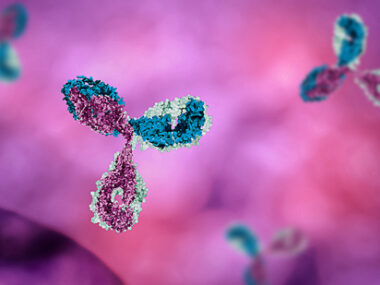Muna, GSK partner to develop targets for Alzheimer’s treatments
Collaboration will use brain samples to identify potential targets
Written by |

Muna Therapeutics and GSK said they will collaborate to identify and validate new therapeutic targets for Alzheimer’s disease, a step that could pave the way for new treatments for the condition.
The research collaboration will leverage Muna’s MiND-MAP platform, which analyzes analyze post-mortem brain samples from people with Alzheimer’s and compares them with the brains of healthy individuals, centenarians with and without cognitive impairment, and people without cognitive decline despite age or exposure to risk factors.
This approach is designed to help uncover the genetic and cellular mechanisms behind Alzheimer’s progression and resilience, with the ultimate goal of identifying new targets for therapeutic development.
“Our agreement marks a pivotal moment in Muna’s evolution and in the broader Alzheimer’s research landscape,” Rita Balice-Gordon, PhD, Muna’s CEO, said in a company press release. “By combining GSK’s commitment to breakthrough science with our MiND-MAP platform’s ability to deliver novel insights into brain resilience, we aim to transform the landscape of drug discovery for neurodegenerative diseases and bring new hope to millions of patients worldwide.”
Muna’s platform provides insight into the brain’s response to the toxic protein aggregates that accumulate in the brain of people with neurodegenerative disease. In the case of Alzheimer’s, this is marked by aggregates of a protein called amyloid-beta.
Potential Alzheimer’s treatments
The MiND-MAP platform enables comprehensive molecular data profiling, including gene expression, protein, and DNA, directly within tissues. Spatial transcriptomics, a component of the platform, has an advantage over traditional gene expression techniques by mapping the precise location of gene activity within tissues, according to Muna.
The company said its expertise in mapping brain activity at the molecular level will help identify potential genes and pathways involved in brain function and cognitive resilience, even in the presence of neurodegeneration.
Candidate targets identified through MiND-MAP will be validated using Muna’s suite of humanized cell and animal models, enhanced by data from patient tissue and biofluid samples.
“By applying spatial multi-omics to unique patient phenotypes [presentations], Muna’s MiND-MAP platform is able to determine the genetic and cellular basis of progression and resilience in neurodegenerative diseases,” said Kaivan Khavandi, MD, PhD, senior vice president and global head of respiratory and immunology R&D at GSK.
Muna will take the lead in identifying and validating new Alzheimer’s targets, while GSK will be responsible for the subsequent therapeutic development process, including preclinical studies, clinical trials, manufacturing, and commercialization, the companies said.
“The alliance exemplifies our discovery ethos, to utilize advanced data and platform tech to identify high-confidence, human-data-derived, causal targets, which we can support with GSK’s scale and expertise in clinical development and commercialization, to bring desperately needed new therapeutic solutions in Alzheimer’s disease,” Khavandi said.






